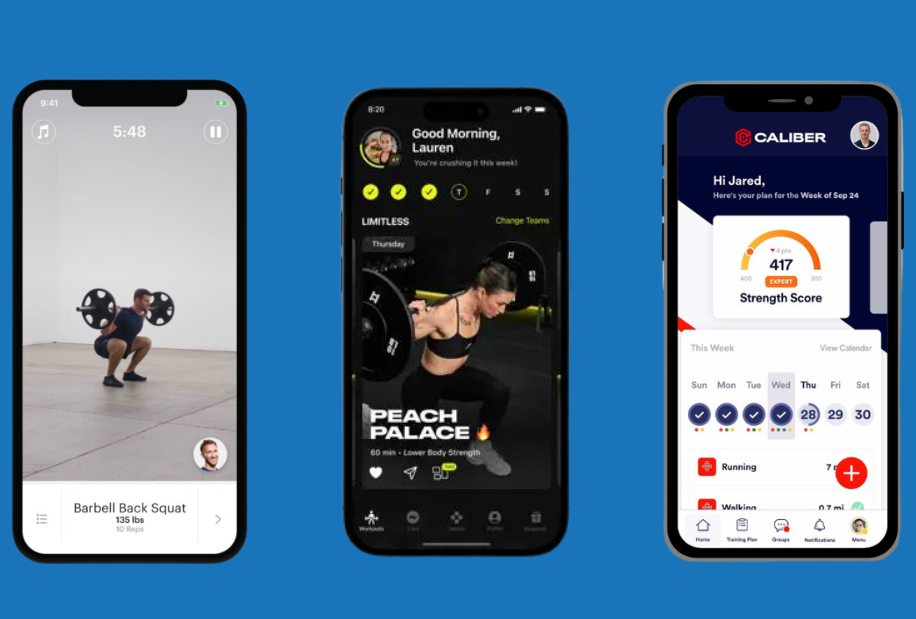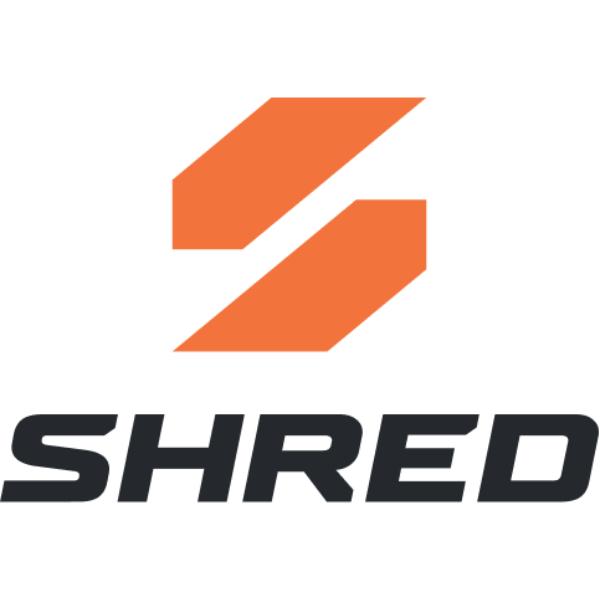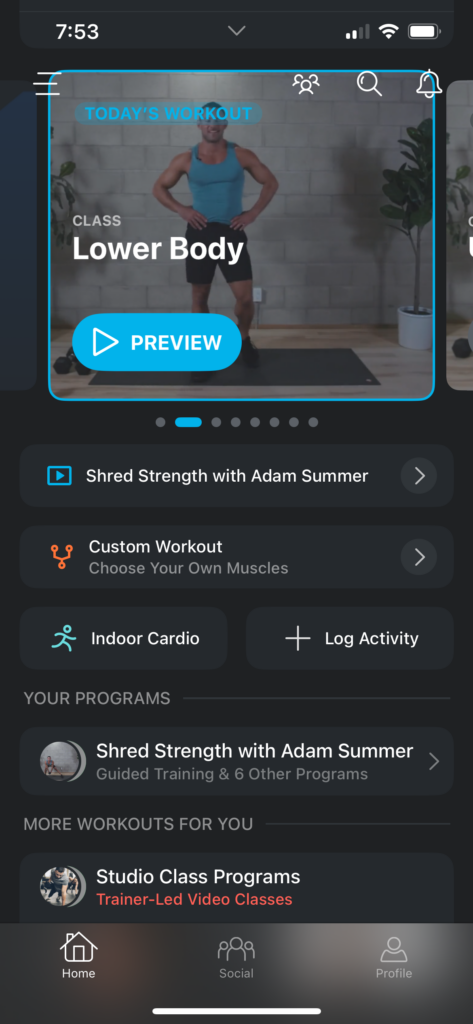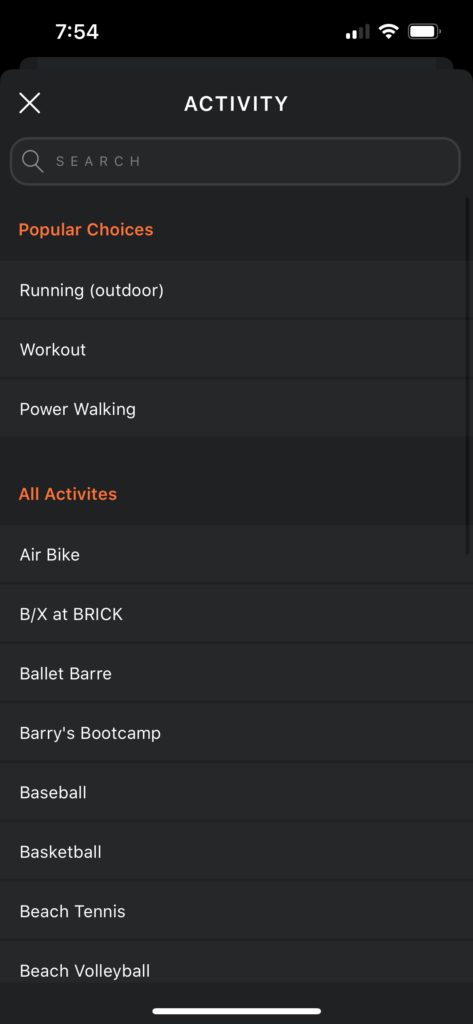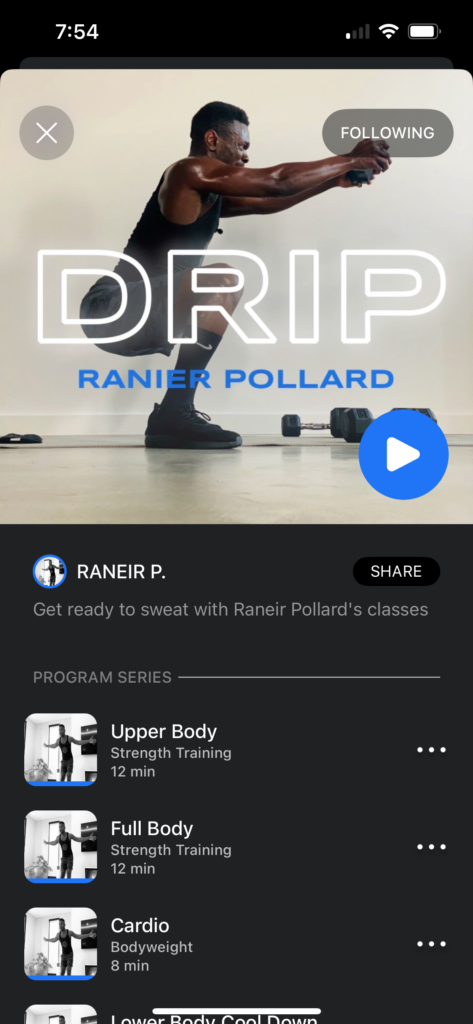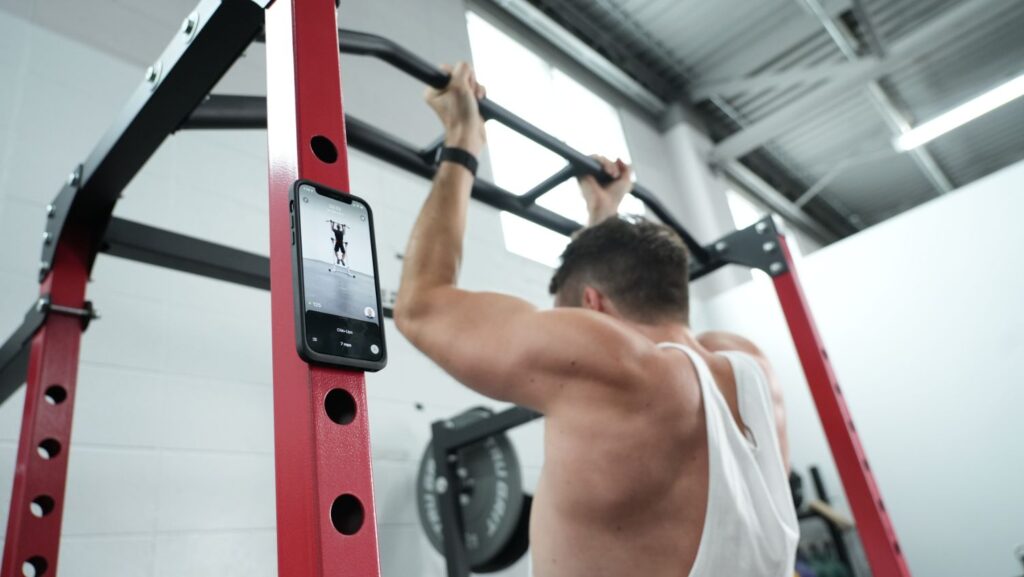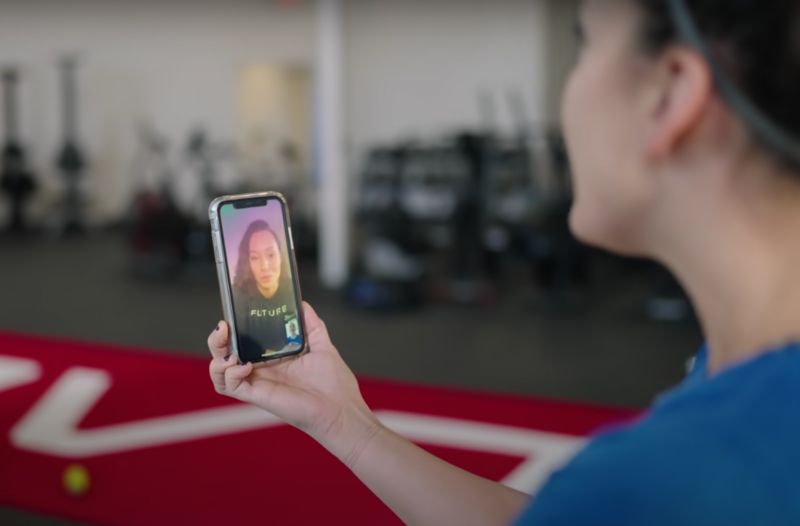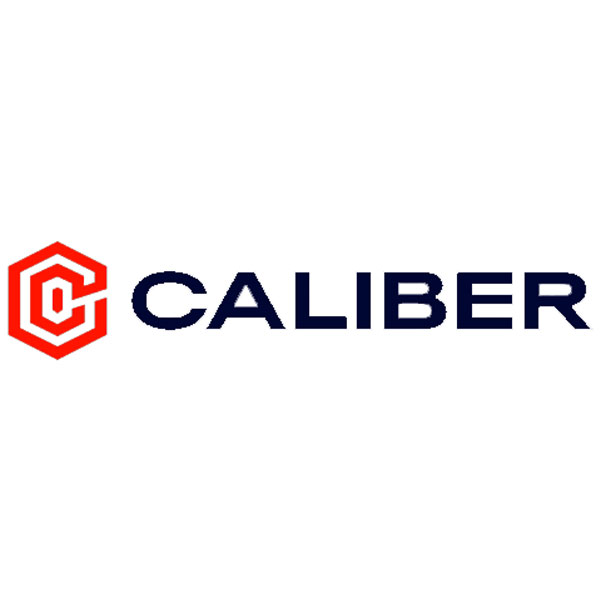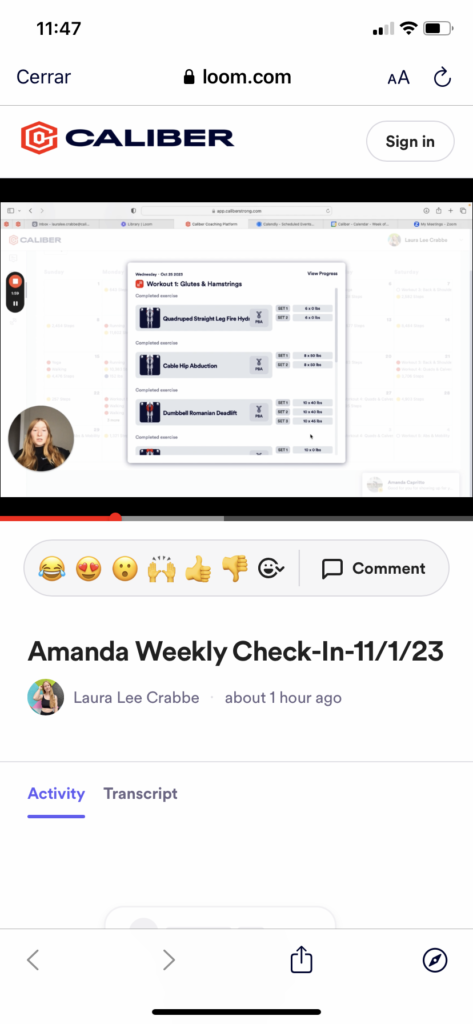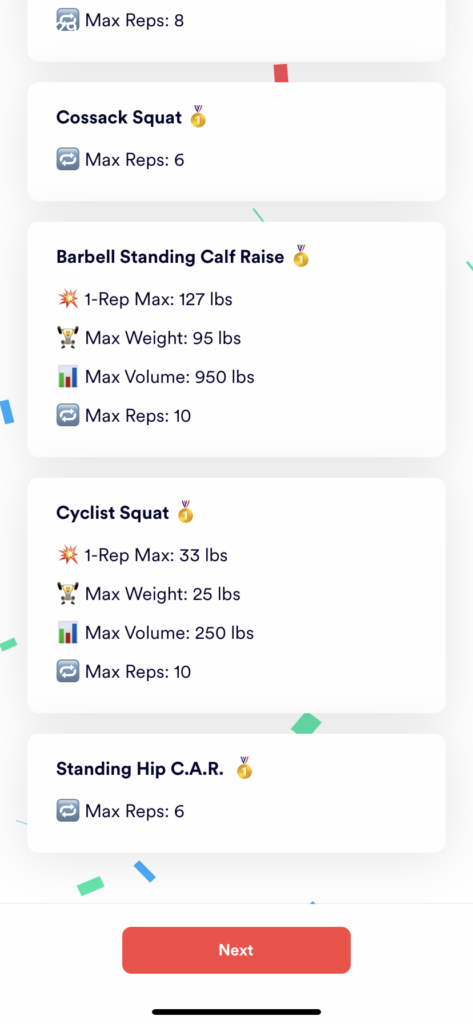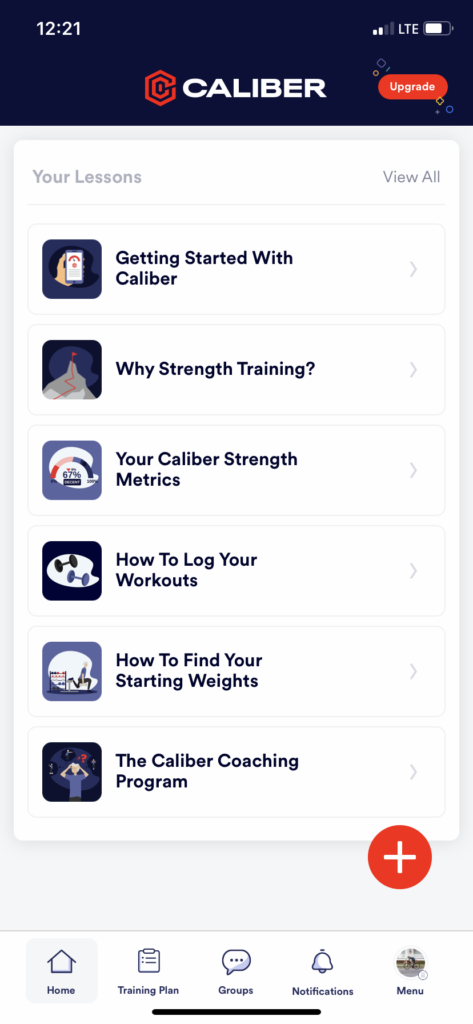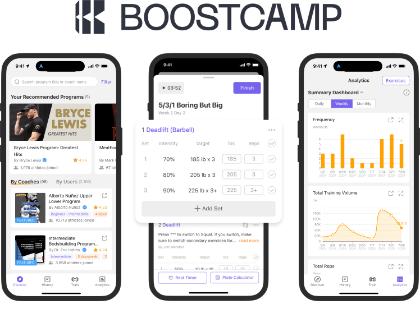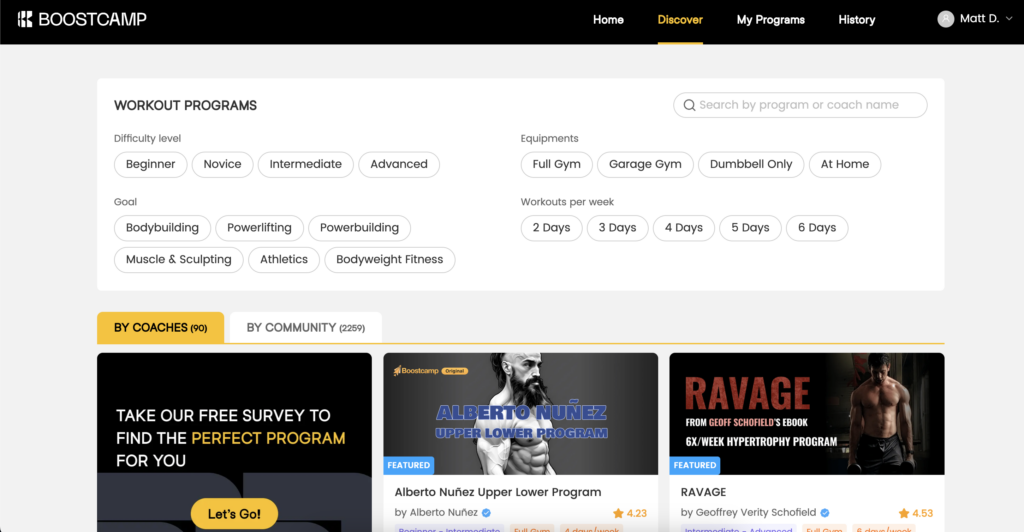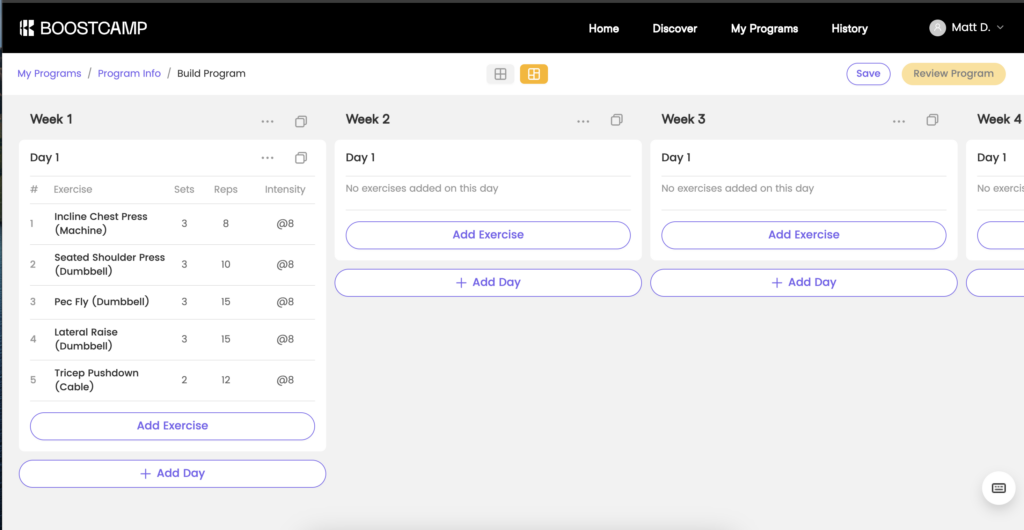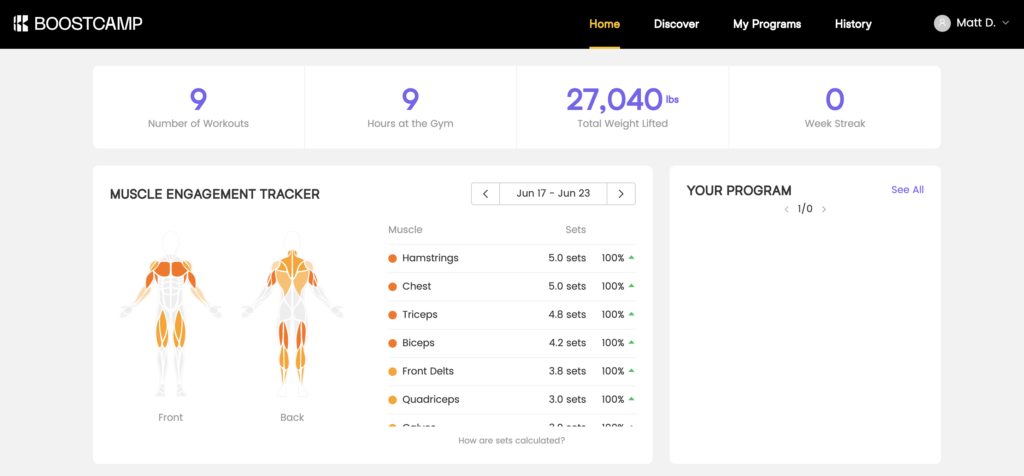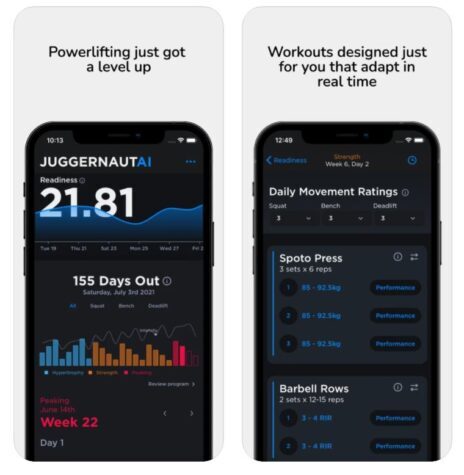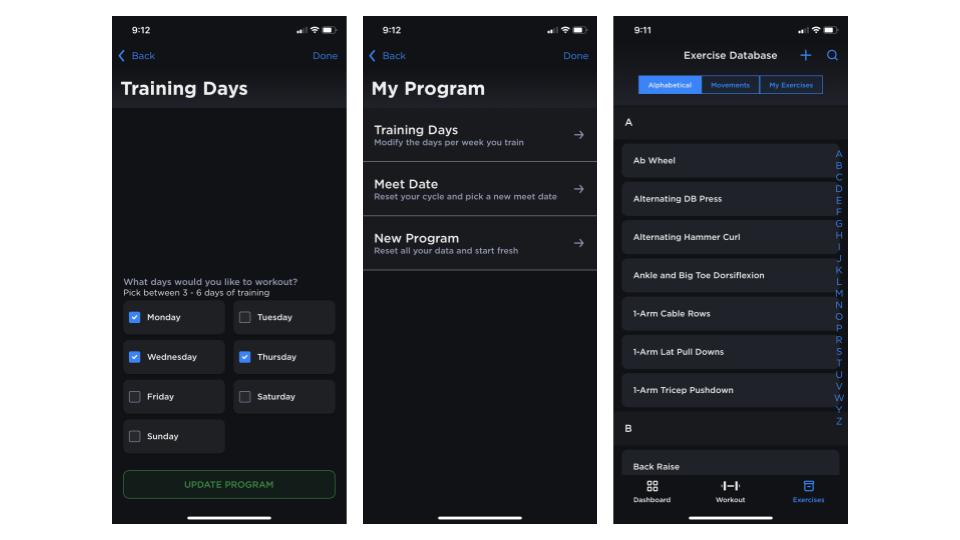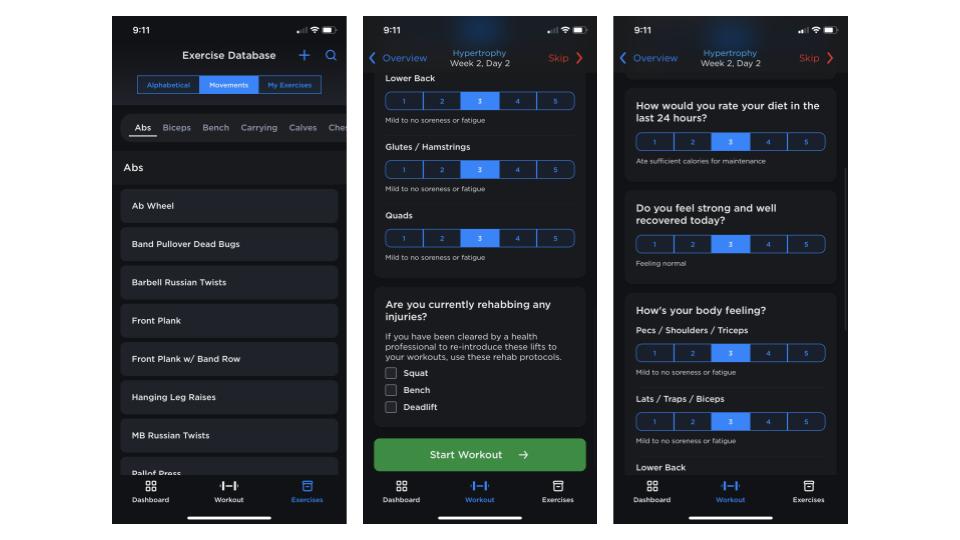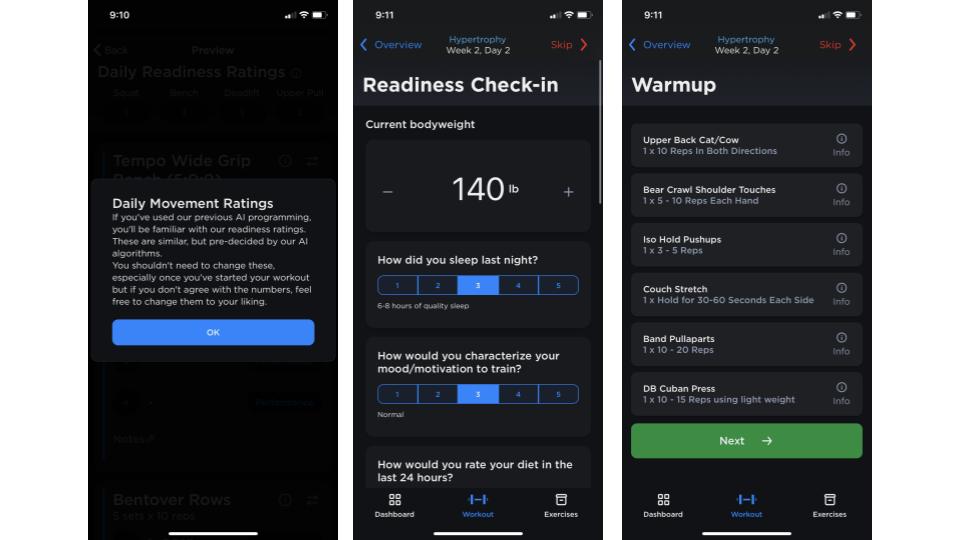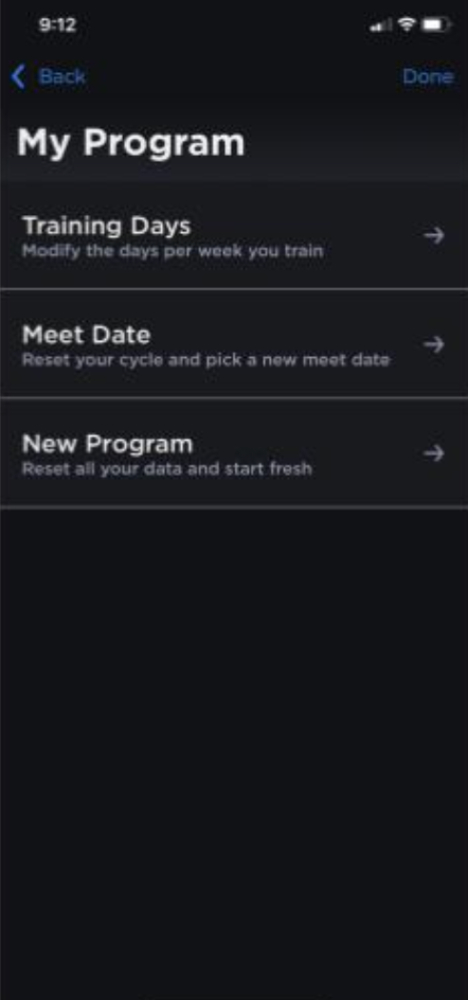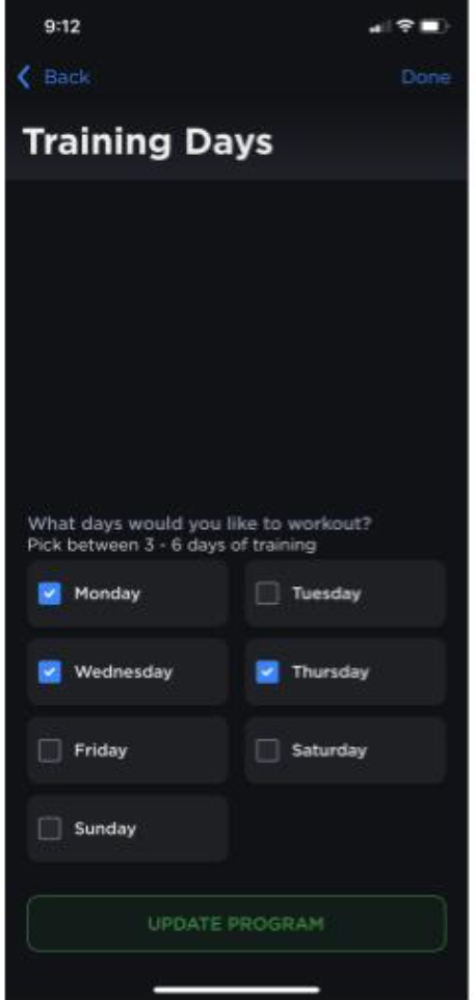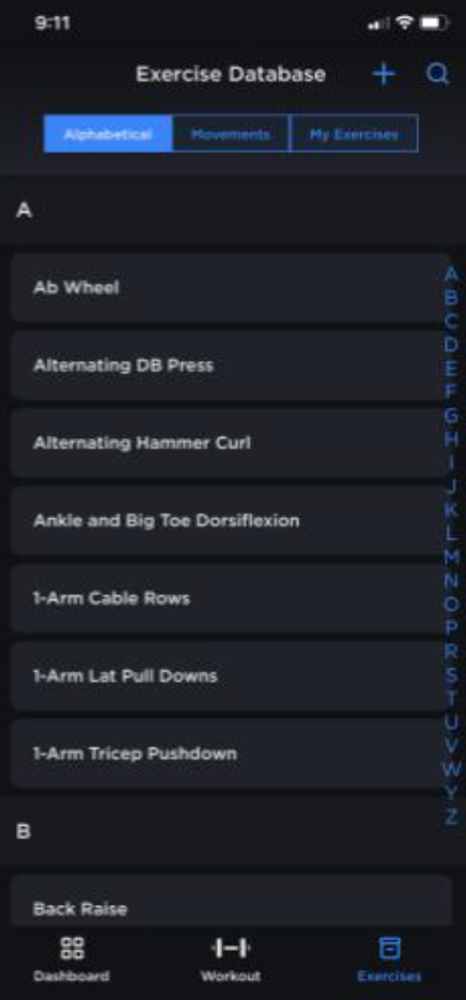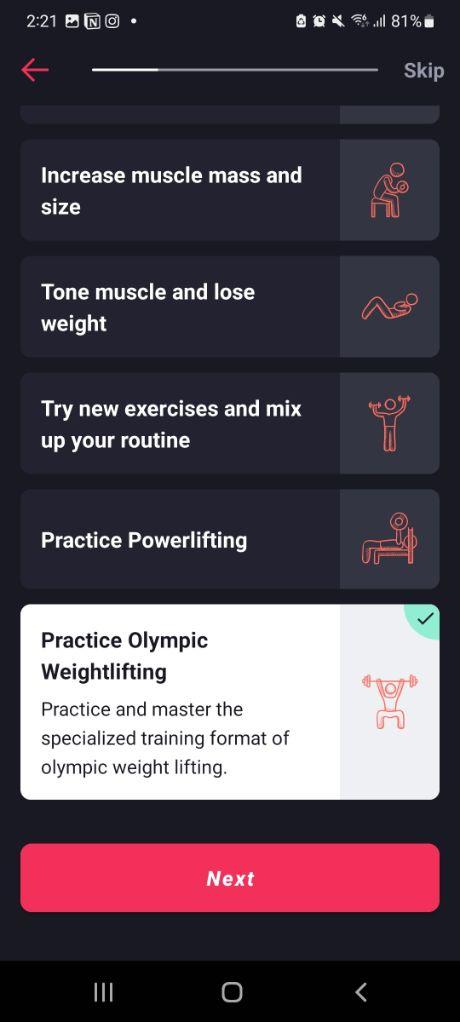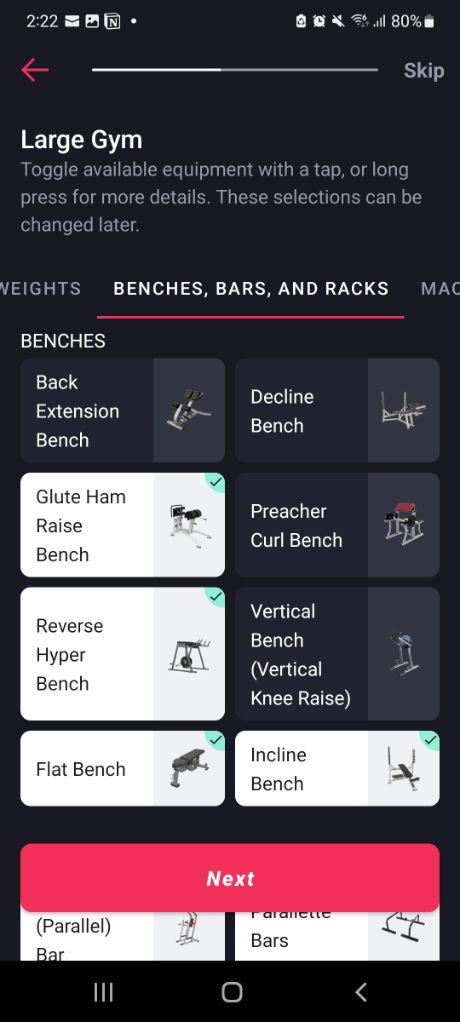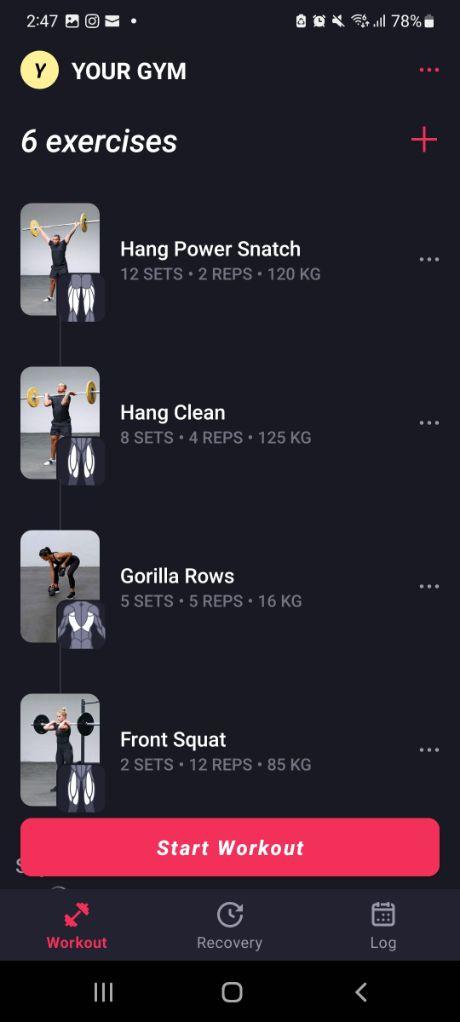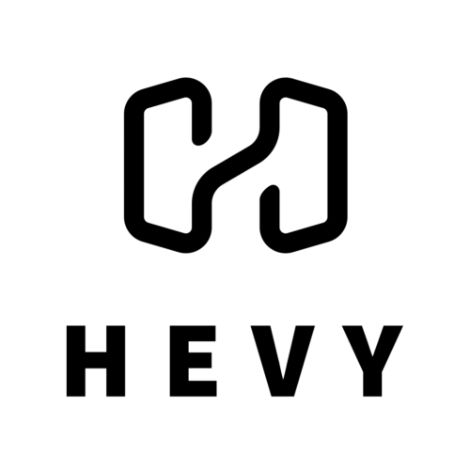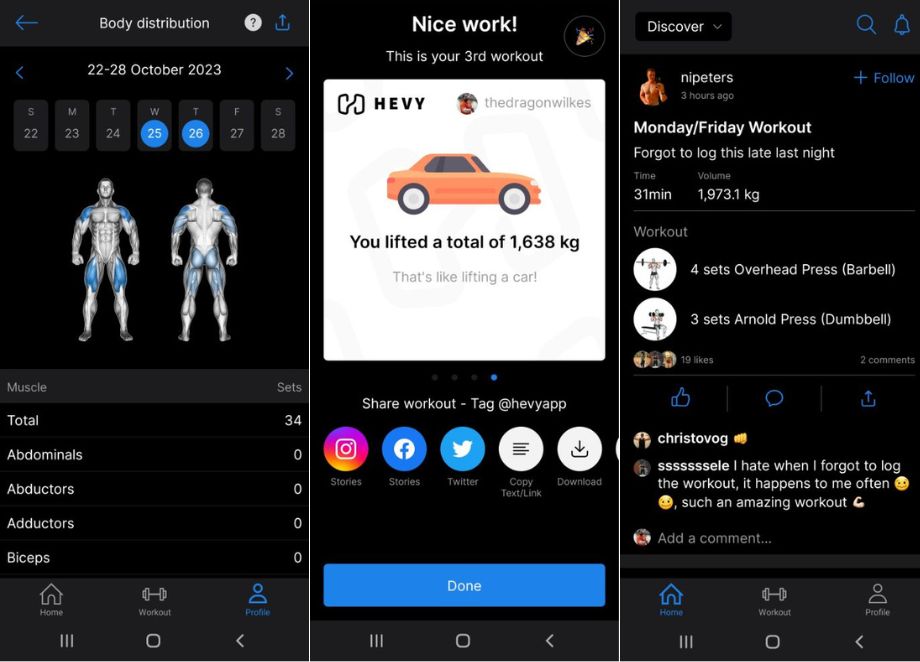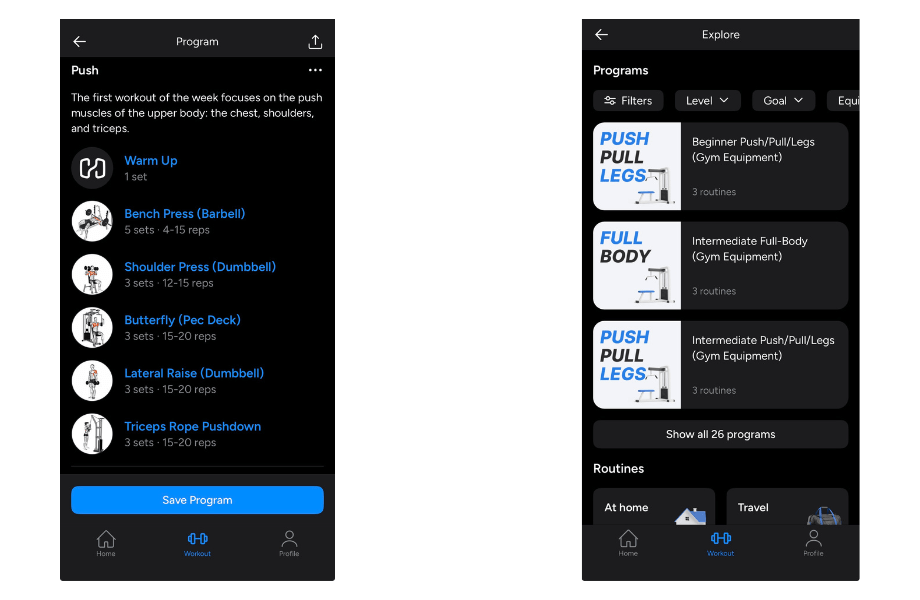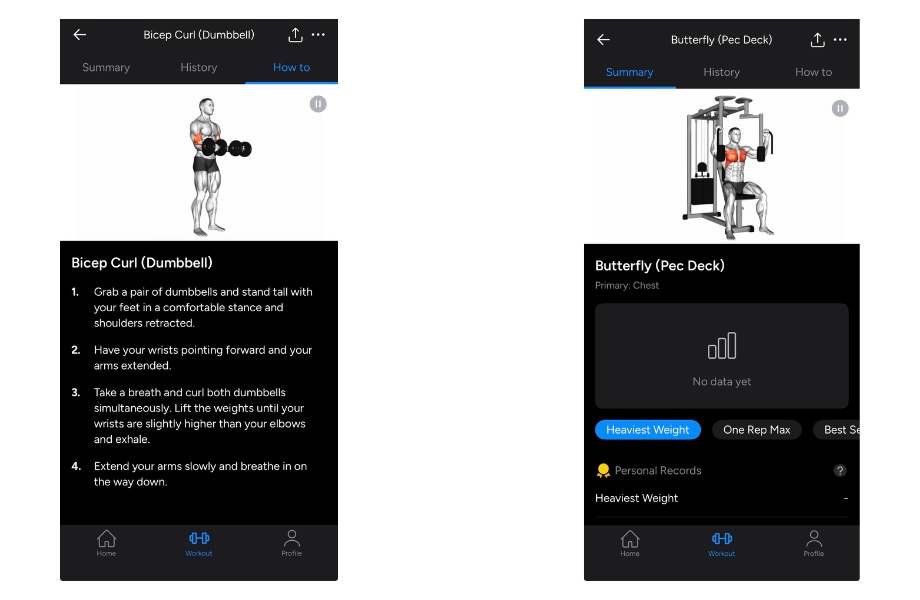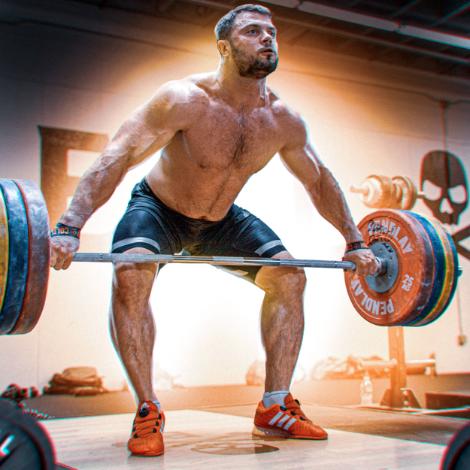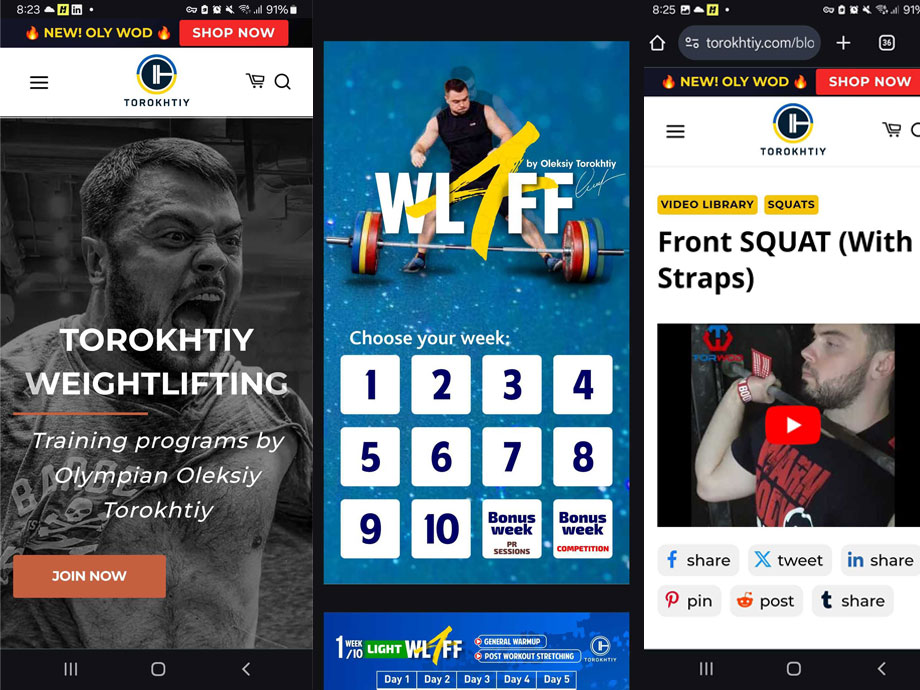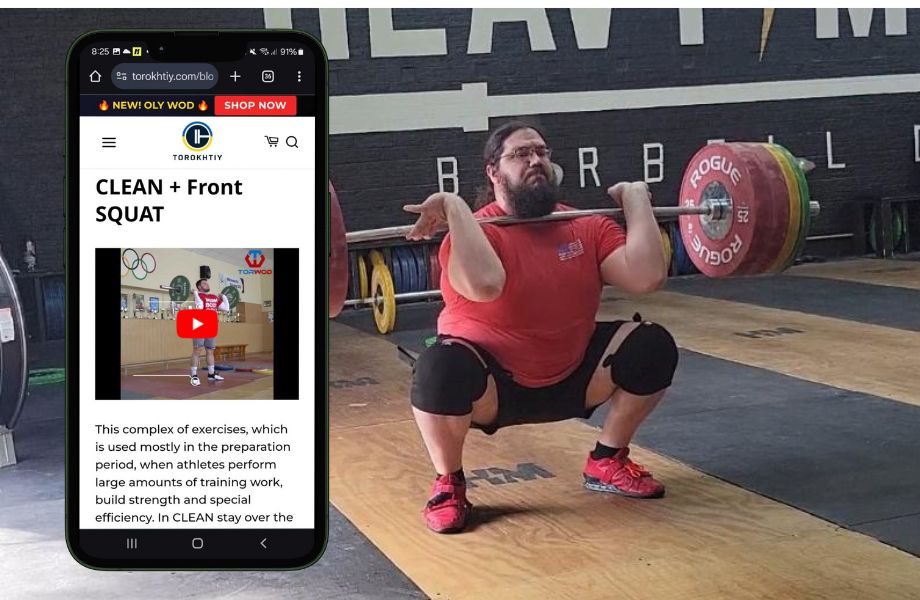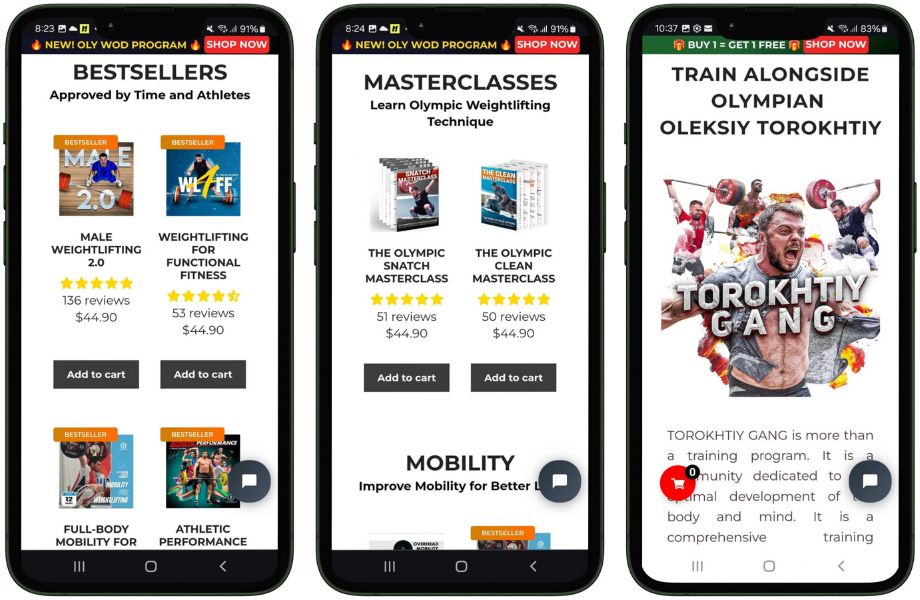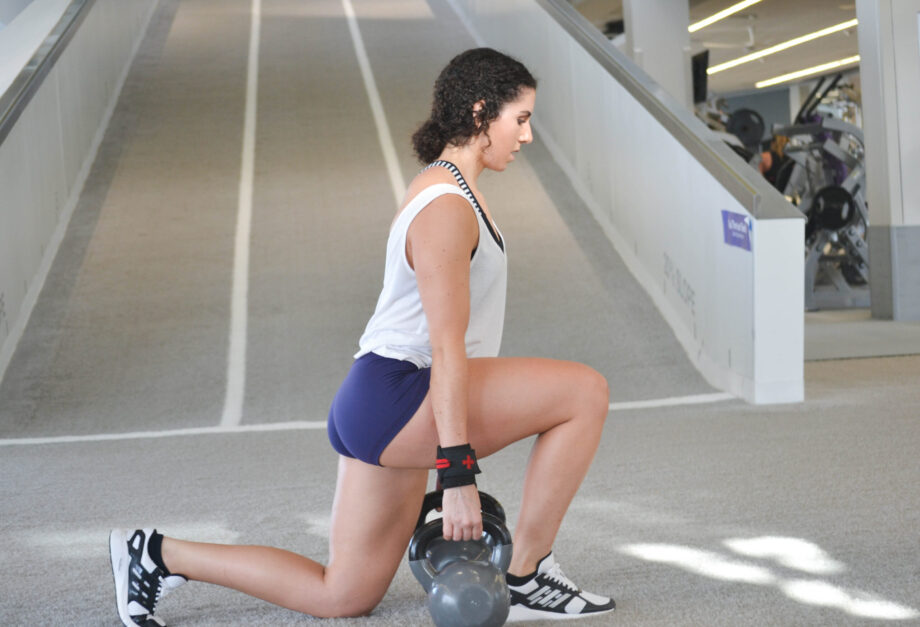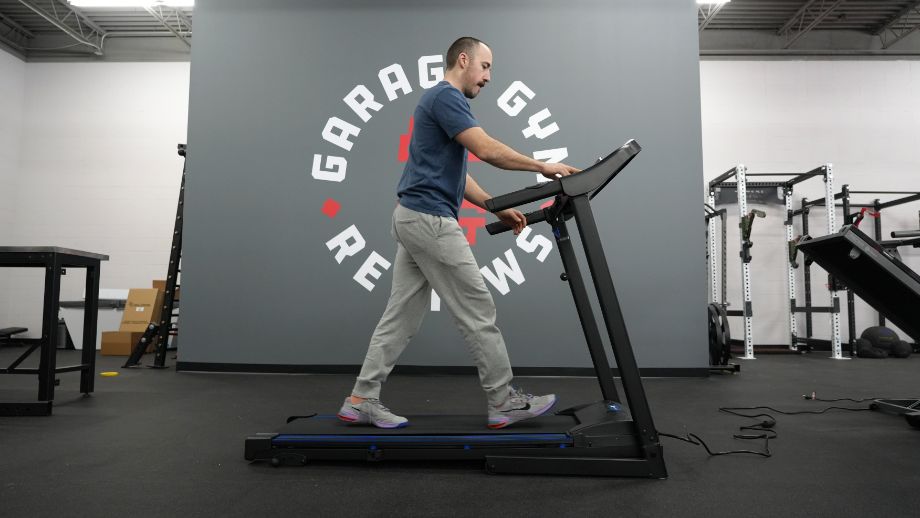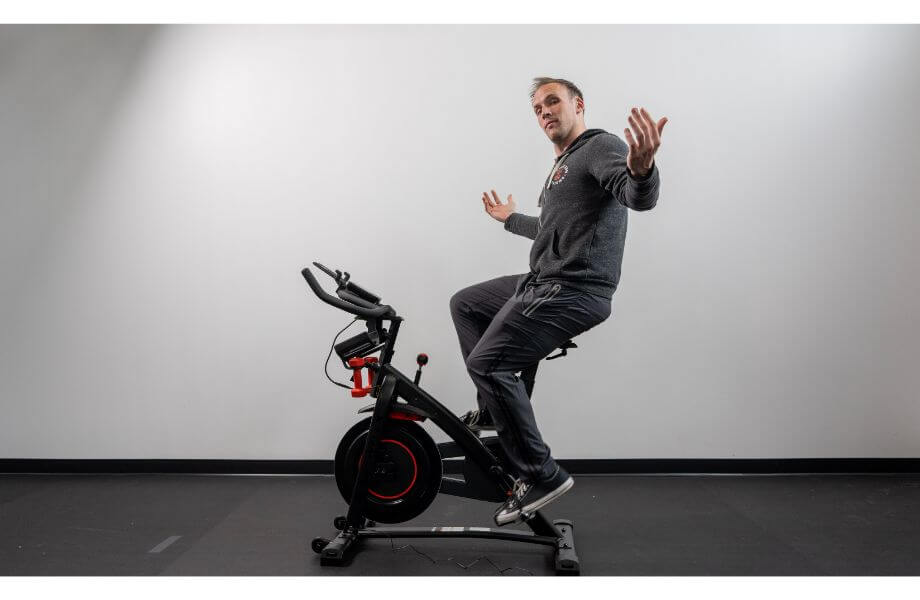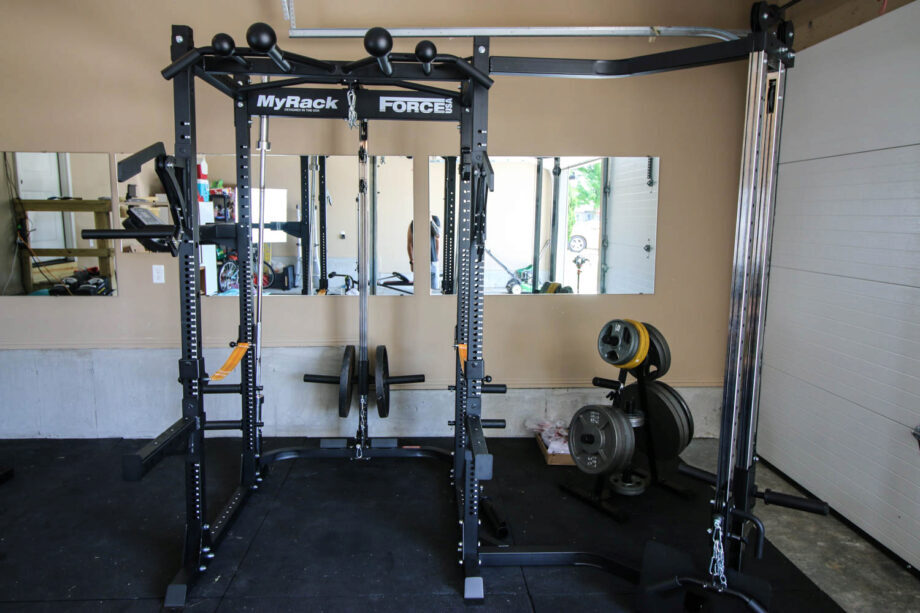Many of the best workout apps focus primarily on strength training—and for good reason. Lifting weights isn’t just about building bigger muscles for better selfies. Research shows resistance training supports improved bone density1, metabolism2, and longevity3.
If you’re less interested in guided cardio and more focused on training plans involving pumping iron, the Garage Gym Reviews team has got you covered. Our crew of certified personal trainers, lifting coaches, and lifelong athletes has tested more than 50 training platforms (and researched dozens more) to curate our list of the best weightlifting apps. During our evaluation process, we use our comprehensive testing methodology to rate different categories using a 1-5 scoring system. Some key areas we assess include:
- Trial Period: To earn 3 out of 5 stars, an app should offer at least a seven-day trial period. We award higher scores to platforms that allot more time for test runs before committing to a subscription.
- Ease of Use: Apps that are easy to navigate with quick-to-find workouts and features earn at least a 3 out of 5. Cluttered interfaces, frequent glitches, or confusing layouts lead to lower scores.
- Accountability: Apps that encourage you to stay on track with daily reminders, structured programs, or direct interaction with a coach meet our benchmark for a 3 out of 5. Minimal or no accountability features result in lower ratings.
- Instruction: Clear visual and verbal cues that help make lifting at home more efficient earn at least a 3-out-of-5 rating. Weightlifting apps that don’t provide clear instructions fall short, resulting in a score of 1 or 2.
- Progressive Overload: Does the app follow this important principle for building strength and muscle? We award a 3 or higher if the programming follows a clear, structured progression in load, volume, or intensity over time.
We also consulted with GGR chief medical advisor Dr. Raj Dasgupta, MD, FACP, FCCP, FAASM, and GGR expert contributor Chris Mohr, PhD, RD, about the benefits of resistance training, the importance of progressive overload, and other lifting-related topics. In 2024, we helped nearly 2,500 people find their ideal workout app. Now, we’re stepping in as your spotter to help you choose the perfect weightlifting app for maximum gains.
The 8 Best Weightlifting Apps of 2026
- Best Weightlifting App Overall – Shred App
- Best Weightlifting App for Home Gyms – Future
- Best Weightlifting App for Beginners – Caliber Strength Training
- Best Weightlifting App for Advanced Weightlifters – Boostcamp
- Best Weightlifting App for Powerlifters – JuggernautAI
- Best AI Weightlifting App – Fitbod
- Best Free Weightlifting App – Hevy
- Best Olympic Weightlifting Program – Torokhtiy Weightlifting Program
Current Top Deals
- Future – GGR Exclusive: Get your first month free
- JuggernautAI – Use code GARAGEGYM to save 10%
Latest Updates
In December 2025, we reviewed our list of the best weightlifting apps and made a few changes based on our latest testing. The Shred App still earns our top recommendation, but we swapped out picks that didn’t hold up in accountability, ease of use, and interactive features. New additions—like Fitbod and Boostcamp—stood out for their high scores in these categories.
Best Weightlifting App Overall: Shred App
Updated by: Stephen Sheehan, CPT, CNC
The Shred app is an AI-powered virtual trainer that can be used to customize workouts in your home or commercial gym.
What our tester says:
“The instructions are great. If you’re not doing a trainer-led video, some exercise tutorials also come with step-by-step breakdowns on how to do a certain exercise.”
Best Weightlifting App for Home Gyms: Future
Updated by: Stephen Sheehan, CPT, CNC
Although it costs about $200 a month, Future features a user-friendly interface, customizable programming, and excellent support from your personal coach.
What our tester says:
“My coach does a great job of checking in on training and rest days. They also take my feedback into account when designing workouts moving forward.”
Best Weightlifting App for Beginners: Caliber Strength Training
Updated by: Stephen Sheehan, CPT, CNC
Caliber Strength Training is a fitness coaching program grounded in scientific principles designed to increase strength and improve body composition. The app offers both group and individual training plans which are written and modified by a certified coach based on progress.
What our tester says:
“My coach gives me goals to hit each week regarding weights and reps to ensure I’m progressively overloading. There’s also a feature in the app that lets you record right from within the app, then your trainer can send feedback ASAP on how to correct if needed.”
Best Weightlifting App for Advanced Weightlifters: Boostcamp
Updated by: Stephen Sheehan, CPT, CNC
Best Weightlifting App for Powerlifters: JuggernautAI
Updated by: Stephen Sheehan, CPT, CNC
JuggernautAI compiles your information to create a personalized powerlifting and powerbuilding workout experience.
What our tester says:
“While artificial intelligence programs your workouts, it’s still completely based on the principles of progressive overload.”
Best AI Weightlifting App: Fitbod
Updated by: Stephen Sheehan, CPT, CNC
The Fitbod App is a high-tech AI-powered fitness platform that personalizes workouts and adapts them over time based on your progress. Although there is not a free version, the subscription is affordable and allows you to workout with whatever equipment you have.
What our tester says:
“There’s plenty of variety, and workouts are structured based off of the equipment you say you have available. The app pulls exercises from the database of available exercises based on what you have access to.”
Best Free Weightlifting App: Hevy
Updated by: Stephen Sheehan, CPT, CNC
If you are on the hunt for a free workout tracker, Hevy enables users to create routines, monitor progress with exercise charts and personal records, make exercise-specific notes, and connect with other users.
What our tester says:
“One of my squat workouts said I lifted the equivalent of a car. If that can’t keep someone motivated, I’m not sure what will.”
Best Olympic Weightlifting Program: Torokhtiy Weightlifting Program
Updated by: Stephen Sheehan, CPT, CNC
Designed by Ukrainian Olympian Oleksiy Torokhtiy, Torokhtiy Weightlifting is a series of programs geared for learning and training the Olympic lifts—the snatch and the clean and jerk. While there are programs for bodybuilding and powerlifting, the main focus and specialty is Olympic weightlifting. A free two-week intro is offered for new users, and the programs have tons of repetitions for new lifters (although the volume may prove too much for some advanced lifters).
What our tester says:
“I’d mostly recommend this program to weightlifters who are still relatively new and not quite lifting to their full strength. If you’ve been lifting for a while and your technique is dialed in, it’s just way too much volume.”
Other Weightlifting Apps We Researched and Tested
Not every weightlifting app made our list. Here are a few other apps that are worth noting, but still didn’t make our top picks.
- Street Parking: Although we actually like this app, it’s not one of our top picks mostly due to pricing. It’s a bit expensive for what you get and doesn’t offer a free trial. We have more details in our Street Parking review.
- Train Hard App: While this strength program and app from Jason Khalipa has weight training elements, this app is focused more on HIIT and functional fitness common in CrossFit. You can see if this app is right for you in our Train Hard app review.
- MAPS Anabolic: This program follows the simple training methodologies of periodization and progressive overload, along with an extensive library of movements. However, there are no interactive features to help you stay motivated. Read more in our MAPS Anabolic review.
- Jefit: This workout-tracking app offers coach-designed workouts, detailed progress monitoring, and Apple Watch compatibility. However, a cluttered interface, frequent ads in the fully free version, and occasional syncing glitches kept it off our best weightlifting apps roundup.
How We Picked And Tested The Best Weightlifting Apps
Of the over 50 training programs and fitness apps we tested, we selected apps for this list specifically for lifting weights and resistance training. We tested these digital workout platforms extensively, rating each app across multiple categories. Here are some of the important aspects of a weightlifting app that we looked at, along with customer service and other users’ reviews:
Trial Period
A free trial gives you time to explore an app’s features and functionality before committing to a subscription. To earn at least a 3 out of 5, a weightlifting app should offer a seven-day free trial so users can assess its capabilities. Apps that go beyond this by providing 14-day (or longer) trials, allowing access without requiring card info, or sending clear reminders before charging can earn higher scores.
Pricing
Nobody wants to pay for another monthly subscription if it’s not worth it. A score of 3 means the app is priced fairly based on its features and functionality (typically around $35 or less). Apps that cost less than $10 per month, or offer a one-time purchase option, earn higher scores.
App Setup
How quickly can you get the app running? To score a 3, an app should be easy to install with a straightforward account setup process (though minor hiccups may occur). Apps that are ultra-simple to set up and get running in less than five minutes earn top marks. Confusing installation processes, unclear navigation, or frustrating errors can result in lower scores.
Ease of Use
Once you get the app set up, how easy is it to use? A score of 3 out of 5 indicates it’s mostly intuitive but may require occasional pauses to locate features or understand instructions. Apps earn higher scores when the interface is clean, navigation is seamless, and workouts are easy to follow. On the other hand, poorly organized or cluttered apps with overly confusing menus lose points.
Accountability
Apps earn at least a 3 out of 5 by offering structured programs or workout schedules that users can follow independently—sometimes with reminders. We give higher scores to apps that provide group challenges or 1:1 coaching that encourages motivation and adherence. Apps with no notifications or tracking features earn a 1 or 2 in this category.
Instruction
Whether you want to crank out an upper chest workout or take your triceps to the next level with the Tate press, you want to know exactly what to do. We carefully assess the clarity of the instructions provided, with a 3-out-of-5 rating reflecting adequate visual and verbal instructions that you can follow along confidently. Apps that go above and beyond by providing cues for rest, equipment changes, or tailored guidance earn higher scores.
Workout Variety
Bland, boring workouts will often lead users to abandon their fitness routine. The best weightlifting apps offer a blend of strength training routines, though some repetition may exist. Apps with extensive variety and fresh workouts that keep users engaged and excited earn a 4 or 5. Limited or repetitive programming results in lower scores.
Progressive Overload
Staying in the same spot is never the goal if you’re committed to being your best. We look for apps that integrate progressive overload principles into their programming so you can continuously challenge your body (and mind).
A score of 3 out of 5 means the app provides programs that work if followed, but may lack full optimization for long-term improvement. Higher ratings require well-devised programs that reliably produce gains over time.
Equipment Demands
What type of equipment do you need to complete the workouts? We give apps that have flexibility with equipment demands a 3 out of 5. On the other hand, if you can’t complete sessions without specific equipment, that app will oftentimes receive a lower score.
Interactive Features
To earn at least a 3-out-of-5 rating, weightlifting apps should provide basic community features and tracking capabilities. Platforms with robust community engagement, social media integration, and chat features that enhance interaction or make the experience more enjoyable and engaging receive higher scores.
Value
How much bang for your buck do you get? A score of 3 shows the app offers a fair amount of content and functionality for its price. Apps that are inexpensive or provide exceptional features relative to the cost earn higher marks. Meanwhile, platforms with expensive monthly subscriptions that aren’t justified earn a 1 or 2.
Customer Experience
From how easy it is to get in contact with customer service to the refund policy, we look at all factors that impact the customer experience. A 3-out-of-5 means users can contact support and eventually resolve issues. We give higher ratings when there’s quick, flexible, and easy-to-access support.
Benefits of Weightlifting Apps
Weightlifting apps are geared towards strong lifts and helping athletes achieve new one-rep maxes. No matter your level of experience, workout programs on weightlifting apps can take your strength training to the next level in more ways than one. Let’s look at some of the benefits of weightlifting apps.
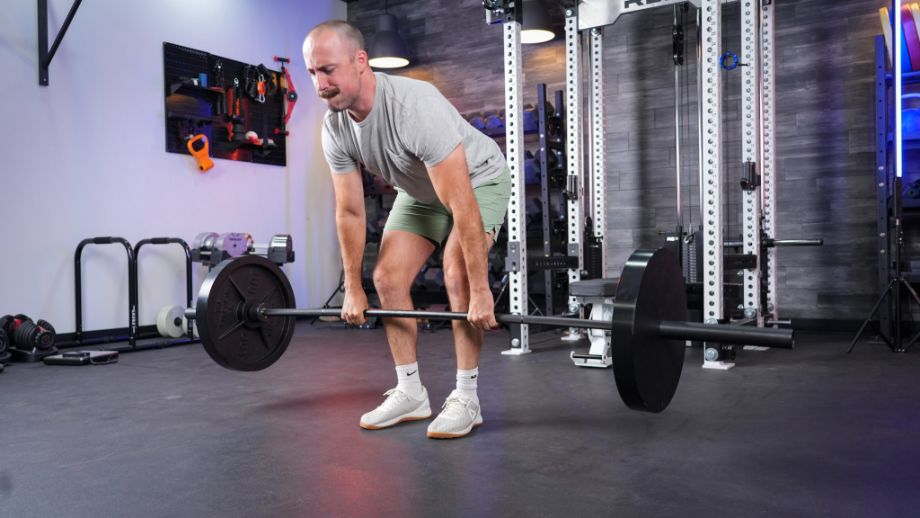
Inexpensive
The best lifting apps are relatively inexpensive when compared to the alternative. While nothing will quite replace a gym workout with a personal trainer or coach, weight training apps can get close, while coming in much less expensive than a personal training session.
RELATED: Home Gym vs Gym Membership
A month of weekly personal training sessions can cost about a few hundred dollars, depending on your trainer’s rates. The higher end of workout and lifting apps comes in at about $200 per month, meaning most apps will be cheaper than an in-person trainer. For those looking to save, a fitness app can provide just that.
Expert Instruction
The level of instruction and programming will vary from app to app, but the best weightlifting apps will have experts behind it. Some apps offer direct contact with a certified personal trainer or professional, while others may use a template from an algorithm (still created by experts). With this level of expertise behind these apps, you can feel sure of the progress you’ll make from your own workouts.
RELATED: Best Personal Training Certifications
This is especially important for novice lifters who may not be familiar with proper techniques or training protocols. Rather than jumping into something too quickly, relying on expert instruction and following this piece of advice from GGR expert contributor Chris Mohr, PhD, RD, can help make your journey safer.
“Start with lighter weights and focus on mastering the correct form,” he says. “As your strength improves, you can gradually increase the weight.”
Convenient
Weightlifting apps are also convenient, as they allow you to perform workouts wherever, whether that’s at a commercial gym, your own home gym, or even while traveling. If you’re training at home, that can save you time on any commutes to the gym you may otherwise have had.
While apps can certainly make life easier, it’s important not to become too reliant. GGR chief medical advisor Dr. Raj Dasgupta, MD, FACP, FCCP, FAASM, offers a word of caution on this topic.
“Technology can facilitate a more informed and personalized approach to health and wellness, but it’s important to use it mindfully and not just rely on numbers,” he explains.
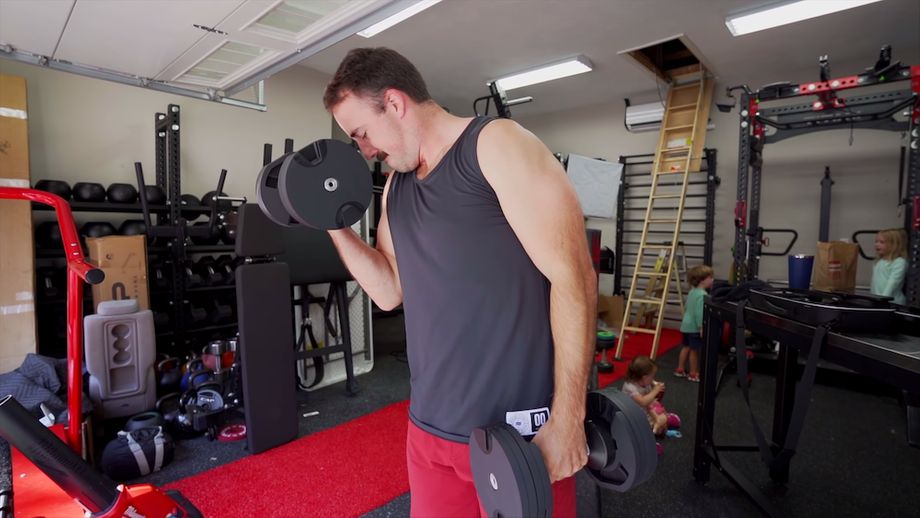
Online Support
Although training in your own home gym can be rewarding, there are times when training by yourself isn’t as motivating as having a training partner. Many lifting apps provide an online social community of support to help you stay motivated. Other apps will also notify you on new personal records throughout your training, keeping you engaged and inspired for the next workout.
RELATED: Fitness in Social Media
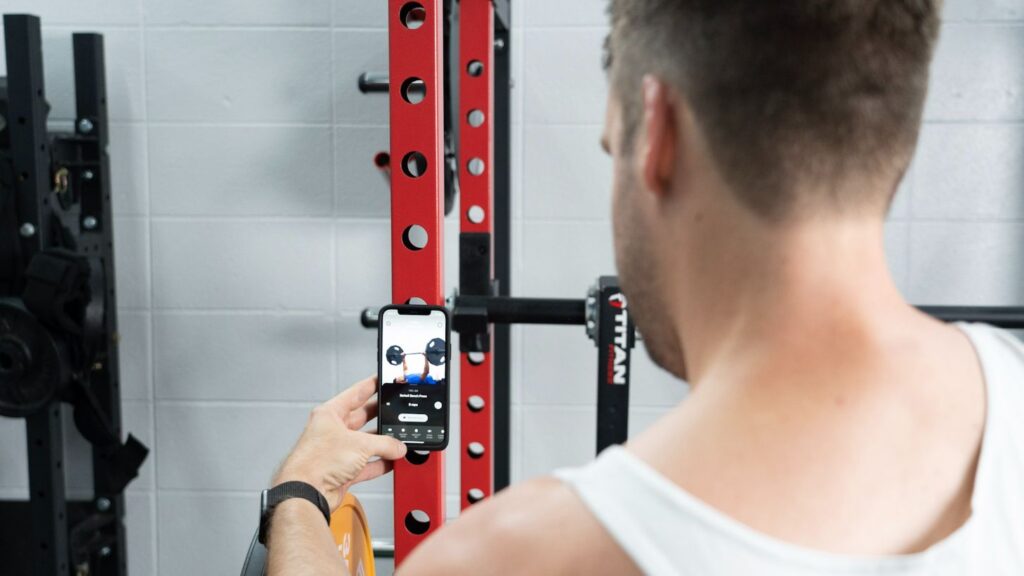
What to Look For in the Best Weightlifting Apps
Looking for a strength training app to fit your needs? Here are some things to consider before subscribing to an app.
Progressive Overload
Most lifting apps offer extended programs, which will follow basic programming principles like progressive overload and periodization. Basically, training routines should progressively increase the load for a number of weeks, before dropping the load and letting the body recover for the next training cycle, as discussed in a 2010 review on periodization5.
“Focusing just on the minimum effective dose for muscle growth might lead to plateauing as the body adapts,” says GGR expert contributor Chris Mohr, PhD, RD. “Over time, increasing either the intensity or volume of workouts may be necessary to continue progressing.”
If you’re looking for a home workout plan that’ll help build muscle, make sure your program is following these basic principles.
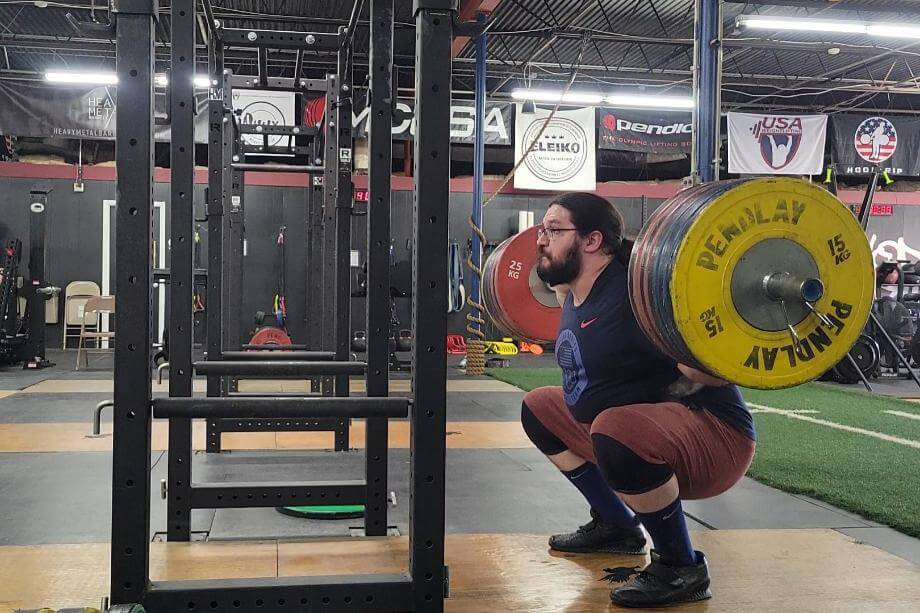
Equipment Demands
No matter your fitness journey, if you’re planning on weight training, then the bare minimum demands for equipment will be weights. The kind of weights can vary though—free weights, Olympic barbells, kettlebells, dumbbells, slam balls, and even resistance bands.
“Dumbbells are a great choice for beginners because they’re relatively easy to handle and can be used for a variety of exercises that target different muscle groups,” Mohr explains.
Make sure that the strength app you’re looking at can provide you with workouts suitable for the equipment you have available.
RELATED: Dumbbells Vs Kettlebells
Level of Instruction
Depending on your needs, you may not need the presence of an online coach in your app. For this reason, many of the best workout apps vary on the level of coaching or instruction you get. The bare minimum should be a library of exercises to let you know how to perform movements in your own workout. Others can have as much guidance as pre-recorded workout videos with coaching cues, or a one-on-one coach who will program and give you technique tips.
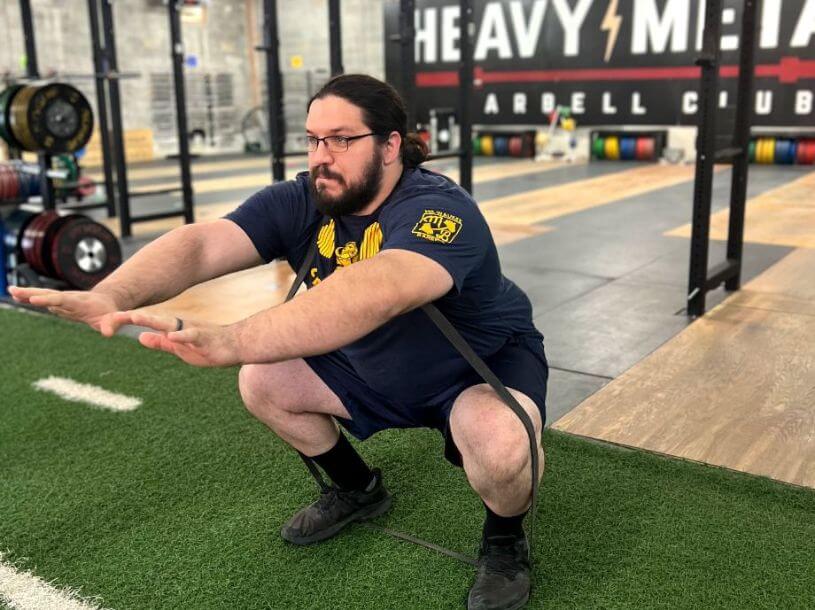
Cost
Although weightlifting apps can save you money from a gym membership or personal training costs, they can still vary in price. Typically, the more input you have from an online coach, the more the app can cost. Group classes and videos can vary in price depending on the level of instruction, and then there are free apps that allow you to log workouts or follow basic workout plans. Make sure the app you choose fits within your budget.
FAQs About Weightlifting Apps
What is the best completely free weightlifting app?
Hevy is our pick for the best completely free weightlifting app, as you can easily log workouts, track your weights and reps, view your progress over time, and join a supportive community—all without paying for a subscription.
What weightlifting app offers the best features for beginners?
Caliber Strength Training is our choice for the best beginner-friendly weightlifting app because it offers a science-based program with a robust exercise library, easy-to-follow tutorials, excellent workout tracking, and optional coach-designed plans that guide new lifters through appropriate strength progression.
What is the best workout app for weightlifting?
The best app for lifting weights will depend on your fitness level and goals, along with any specific mode of strength training you wish to pursue. That said, our best pick for most users is the Shred app, which allows for customizable workouts based on the equipment you have on hand, tracks your progress, all while being a fairly inexpensive workout app.
References
- Wang, Z., Zan, X., Li, Y., Lu, Y., Xia, Y., & Pan, X. (2023). Comparative efficacy of different resistance training protocols on bone mineral density in postmenopausal women: A systematic review and network meta-analysis. Frontiers in Physiology, 14, 1105303. https://doi.org/10.3389/fphys.2023.1105303
- Westcott W. L. (2012). Resistance training is medicine: effects of strength training on health. Current sports medicine reports, 11(4), 209–216. https://doi.org/10.1249/JSR.0b013e31825dabb8
- Tucker, L. A., & Bates, C. J. (2024). Telomere length and biological aging: The role of strength training in 4814 US men and women. Biology, 13(11), 883. https://doi.org/10.3390/biology13110883
- Admin. (2024, October 15). How Much Does a Personal Trainer Cost? Michigan Fitness Association. https://mfafit.org/how-much-does-a-personal-trainer-cost
- McGrath, E., Mahony, N., Fleming, N., & Donne, B. (2019). Is the FTP Test a Reliable, Reproducible and Functional Assessment Tool in Highly-Trained Athletes?. International journal of exercise science, 12(4), 1334–1345. https://doi.org/10.70252/RQOO7391






